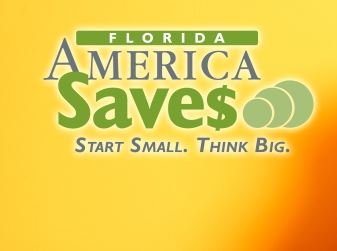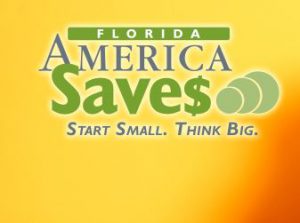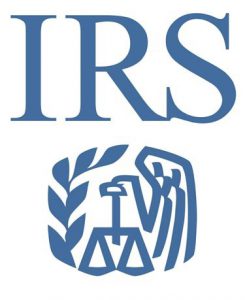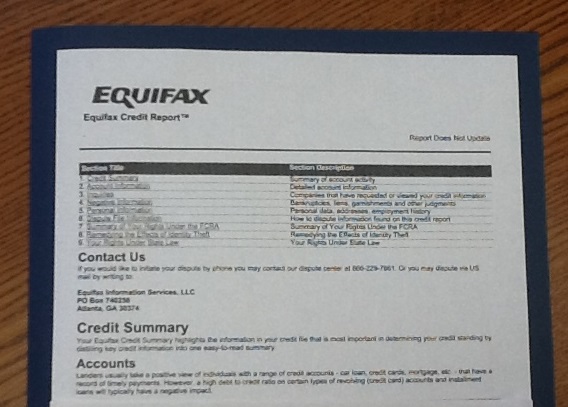
by Judy Corbus | Feb 27, 2018

Photo Source: University of Florida
It’s tax time, and many of us will be seeing refund checks soon—time to celebrate!
Now, what are you going to do with all that extra cash?
Maybe you have some bills to take care of, and it’s certainly a good idea to get those off your plate. But after that, let’s say you have some money left over. What then?
Think about putting those extra dollars in a savings account. Or, if you don’t have a savings account, open one. Even if it’s just $100, that first deposit could be the start of a lifelong savings habit.
Which brings us to another question: Why is it important to save?
Let me answer that question with another question: If you had to cover a $1,000 unexpected expense today, could you do it?
These little emergencies come up all the time. Your car needs repairs. You get sick and miss work. You have to travel out of state unexpectedly. These challenges are just part of life, but you can be prepared to meet them.
That $100 you tuck away is not much now, but consider this: If you saved $100 each month for a year, you’d have $1,200 in your bank account. That’s a good financial cushion that can keep you afloat when the unexpected happens.
Need a little encouragement to stick to the savings habit? The Florida Saves Pledge (floridasaves.org) is a great tool for setting financial goals. With this pledge, you’re making a commitment to work toward some type of savings objective, such as an emergency fund, a down payment on a house, or even retirement.
As a Family and Consumer Sciences Agent in Washington and Holmes Counties, part of my job is to help our community members learn to take charge of their money. In fact, there are people like me all over the state helping their neighbors with everything from horticulture to nutrition and youth development. We’re a network of experts who make up the University of Florida’s Institute of Food and Agricultural Sciences Extension. And we’re here to help, today.
For more information, contact your local Extension Office.

by Kendra Hughson | Jan 26, 2018

Family picking blueberries at a u-pick farm. Credit: UF/IFAS Tyler Jones
The question of what happens to the family farm is often riddled with many emotional opinions. So much so that families may not communicate effectively about their wishes or plans. Many life events can change the dynamics of a family farm. Whether marriage, children, divorce, illness, retirement or death, significant events can require a plan or a change in the transition plan. Planning in advance of a crisis or significant life event increases the chances that the family farm will successfully transition to someone who is ready to carry on the family business. Having a plan also can lead to clear communication that reduces the likelihood of family conflict and stress. Yet, four out of five Florida farmers do not have written estate plans.
You can take steps to protect your family and your family farm by attending the University of Florida IFAS Extension workshop, “Ag Saves: Preparing for Later Life Farming.” This workshop will help you ensure that your wishes are honored when the time comes.
You and your partners are invited to learn together how to:
- Discuss the future of the farm
- Assess your future financial needs
- Talk with local experts in financial planning, estate planning, and taxes
Join us for this complimentary program on Wednesday, February 21, 2018. Lunch and materials will be provided. Program sponsors include UF/IFAS Extension, U.S. Trust, Pacific Life, and Merrill Lynch.
Registration will begin at 8:30 a.m. Central Time/9:30 a.m. Eastern Time.
Program will begin at 9:00 a.m. Central/10:00 a.m. Eastern and conclude at 1:00 p.m. Central/ 2:00 pm. Eastern.
Register Online: http://bit.ly/2AOv0JC
Registration deadline: February 14, 2018. Choose from 3 Locations in Northwest Florida:
Okaloosa County Extension Office (host site)
3098 Airport Road
Crestview, FL
850-689-5850
Jennifer Bearden: bearden@ufl.edu
Jefferson County Extension Office (satellite site)
2729 W Washington Hwy.
Monticello, FL
850-342-0187
Julianne Shoup: juliannes@ufl.edu
Gadsden County Extension Office (satellite site)
2140 West Jefferson Street
Quincy, FL
850-875-7255
Laurie Osgood: osgoodlb@ufl.edu
Register online or contact Kendra Zamojski at hughson@ufl.edu for more info.

by Heidi Copeland | Jan 26, 2018
 The Internal Revenue Service (IRS) announced recently the nation’s tax season begins Monday, January 29, 2018. The IRS also reminds taxpayers claiming certain tax credits to expect a longer wait for refunds.
The Internal Revenue Service (IRS) announced recently the nation’s tax season begins Monday, January 29, 2018. The IRS also reminds taxpayers claiming certain tax credits to expect a longer wait for refunds.
Nevertheless, many software companies and tax professionals accept tax returns before January 29, 2017. Be aware! These prepared returns cannot be submitted until the IRS system opens. Any money received prior to the opening of the Income Tax season may cost you! Early refunds are often charged processing fees as well as interest.
In 2017, under the change required by Congress in the Protecting Americans from Tax Hikes (PATH) Act, the IRS is to hold refunds claiming the Earned Income Tax Credit (EITC) and the Additional Child Tax Credit (ACTC). The IRS expects the earliest EITC/ACTC-related refunds to be available in taxpayer bank accounts or on debit cards starting February 27, 2018, if these taxpayers choose direct deposit and there are no other issues with their tax return.
For taxpayers not claiming the EITC/ACTC-related refunds, three weeks is the normal time it takes for a tax return to be processed, factoring in weekends and holidays. In fact, calling the IRS will not expedite your return/refund; typically, an IRS representative can only research the status of your refund 21 days after you file electronically and 6 weeks after you mail your paper return.
Nevertheless, it is your inherent right to both pay taxes and communicate with the IRS about the status of your taxes. You can start checking on your refund status electronically 24 hours after filing your taxes electronically or three weeks after mailing a paper return.
Note: The filing deadline to submit 2017 tax returns is Tuesday, April 17, 2018, rather than the traditional April 15 due date. This year, April 15 falls on a Sunday, and this usually would move the filing deadline to the following Monday – April 16. However, Emancipation Day – a legal holiday in the District of Columbia (DC) – will be observed on that Monday, which pushes the nation’s filing deadline to Tuesday, April 17. Under the tax law, legal holidays in the District of Columbia affect the filing deadline across the nation.
Choosing to both e-file and provide a means for directly depositing refunds remains the fastest and safest way to file an accurate income tax return and receive a refund.
Adapted from the IRS Website.

by Judy Corbus | Oct 10, 2017

Photo credit: Judy Corbus
If you have been affected by the recent Equifax data breach, you may be exploring your options as to what to do next. All three major credit reporting agencies, Equifax, TransUnion, and Experian, give you the option of placing a fraud alert or a credit freeze on your file. So, what is the difference between a fraud alert and a credit freeze?
Fraud Alert
When you activate an initial fraud alert on your report, a business must verify your identity before it issues credit, so it may try to contact you. This can make it more difficult for an identity thief to open new accounts in your name. The initial fraud alert stays on your report for 90 days and you can renew it at the end of the 90-day period. Fraud alerts are free and the credit reporting agency you call must tell the other agencies about your alert. It also allows you to order a free copy of your credit report from each of the three credit reporting agencies. Be sure the credit reporting agencies have your current contact information so they can reach you.
You can place an extended fraud alert on your credit file if you have created an Identity Theft Report. With an extended alert, you can get two free credit reports within 12 months from each of the three credit reporting agencies, and the agencies must take your name off marketing lists for pre-screened credit offers for five years, unless you request to be added back to the lists. The extended alert lasts for seven years.
Credit Freeze
A credit freeze generally stops all access to your credit report. If you wish to open a new account, apply for a job, rent an apartment, buy insurance, refinance your mortgage – any transaction requiring a credit check – you must contact the credit reporting agency to lift the freeze, either temporarily or permanently. You will get a PIN to use each time you wish to freeze or unfreeze your account. In most states, there is a fee to activate a freeze as well as to lift it – usually around $10 for each and per credit reporting agency. There also is a lead time before the freeze is lifted so you would need to arrange for it in advance or be prepared to wait a few days if you planned to apply for credit. Cost and freeze lift lead times may vary so you may wish to check your state’s law or contact the credit reporting agency in advance. In most states, a credit freeze lasts until you lift it; in a few states, it expires after seven years. Click here for the Florida Statute regarding consumer security freezes.
A credit freeze may not prevent misuse of your current accounts or other types of identity theft, such as tax refund identity theft and health insurance fraud. Also, companies with whom you do business still would have access to your credit report for some purposes.
So, fraud alert or credit freeze? It depends a lot on what you have coming up in the near future. If you’re planning to apply for a loan or mortgage, you will have to unfreeze and freeze with each application – consider the cost and time involved. If you are not planning to apply for new credit, then a credit freeze may be a good option for you.
For more information on credit fraud alerts and freezes, visit:
Place a Fraud Alert and Extended Fraud Alerts and Credit Freezes
Sources:
Federal Trade Commission – Place a Fraud Alert
Federal Trade Commission – Extended Fraud Alerts and Credit Freezes
Federal Trade Commission – Fraud Alert or Credit Freeze – Which is Right for You?
UF/IFAS Extension Hillsborough County – Equifax Security Breach: Steps to Protect Yourself

by Marie Arick | Nov 17, 2016

The holidays are fast approaching! Pause long enough to avoid the pitfalls of overspending. Budgets are always tight during holidays. Gifts are not about the cost, rather they are a display of the true relationship of the people involved.
Gift giving at its finest is a true art form. I have a dear friend who really captures the essence of each person with each gift she gives. Gifting is a statement that demonstrates how important the receiver is and how they are perceived in the giver’s eyes.
Always consider the occasion and the relationship with the receiver. It is also important to know the receiver’s culture as to be certain not to offend. A gift given as an afterthought usually displays just that – it was not originally intended to be given. This is not generally the intention of the giver but can give this impression. Additionally, if you intend to re-gift an item, be certain the item meets the personality of the receiver. Re-gifted items tend to be unusual or offbeat, so think hard before taking this path.
Consider practical, useful gifts that match the person you are shopping for. The idea of gifting a need, a want, a clothing item, and a literature item to a person has been one of the most recent trends. Very few people buy that many gifts for those outside of their immediate family. But, this could be applied to others by just taking one of the options. If they are a reader, consider a gift card to a local bookstore instead of a specific title. This provides the option of an e-book or print version. Or, clothing could come in the form of a nice scarf or other accessory that is a part of their usual style.
A gift is a statement of caring. For each person, this is different. Take the time to consider personality, hobbies, interests, and activities. Choose a gift that matches one or more of these considerations. This lends to the true purpose of gifting – to show the receiver how much they mean to you.









